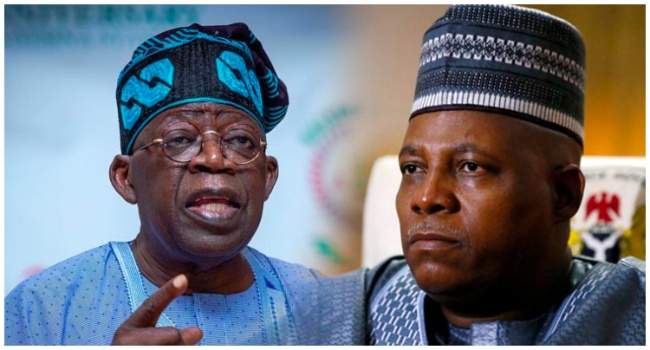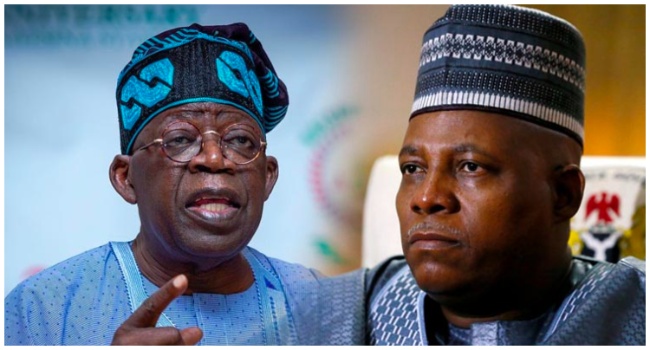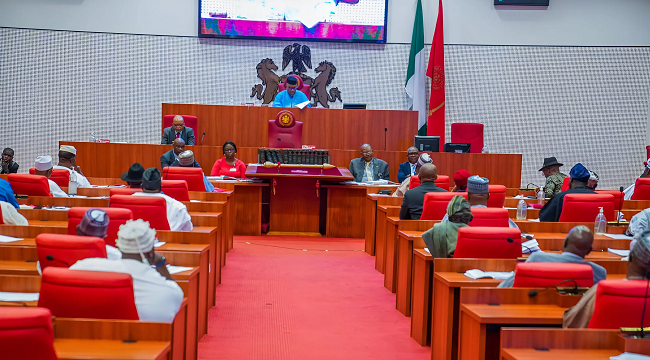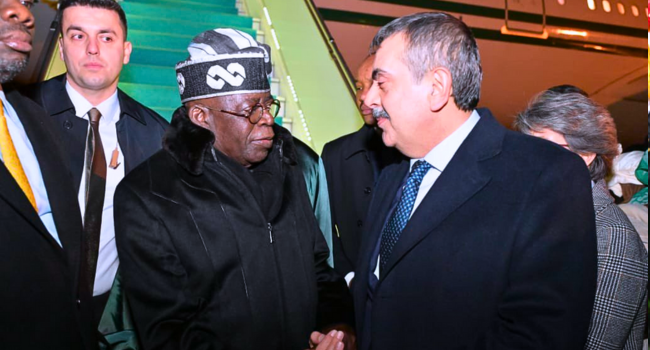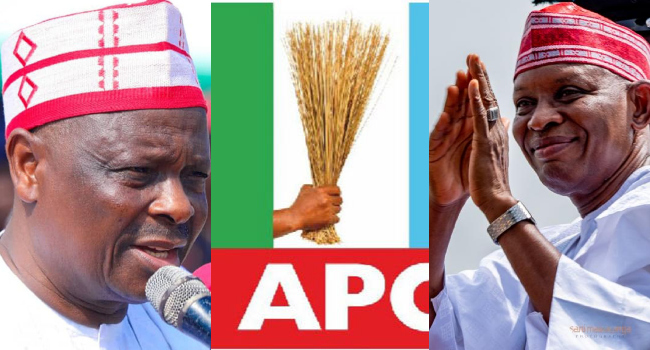
Reports that Bola Tinubu’s vice president Kashim Shettima might be replaced as his running mate in the 2027 elections have been refuted by the All Progressives Congress (APC).
Felix Morka, the APC’s national publicity secretary, addressed the rumors on Politics Today on Monday.
When asked about calls for a balanced 2027 ticket both inside and outside the party, Morka said the party is still focused on governance rather than premature election speculating.
“A few hours ago today, I released a statement to dispel some of the rumors that were circulating regarding the potential replacement of Senator Kashim Shettima as vice president. That tale is unique and only accessible through speculation and rumors. It is a lie in itself.
Election-related activities are still prohibited by the Electoral Act and the laws of our country. The media and the general public would not even permit us to seriously discuss this issue.
It is wrong to speculate about who will succeed the vice president while he is in office. It is merely mischievous and intended to stir up misunderstanding and conflict within the political order. That’s why I felt the need to reject that suggestion today and turn my attention to the administration’s efforts to restart the economy and advance,” he said.
Governor Yusuf defeats the APC with nine federal lawmakers in the states.
Morka weighed in on concerns about religious diversity, and he reassured the party that it will take steps to accommodate all Nigerians.
“Our party is very welcoming,” he said. At this time, this is irrelevant. Our party will have the sensibilities and resources needed to engage in that conversation in the country’s best interests when it arrives. Beyond what is necessary, I’m not interested in speculating.
The APC leadership has repeatedly referred to reports that Shettima’s replacement was “purely speculative, untrue, and completely untrue.”
Political blocs have continued to circulate numerous well-known names despite these official denials.
Mitte 2025, the general public largely became aware of Shettima’s potential removal.
After speakers endorsed President Tinubu for a second term but notably excluded Shettima from the endorsement, a meeting of the APC North-East stakeholders in Gombe descended into chaos in June 2025.
